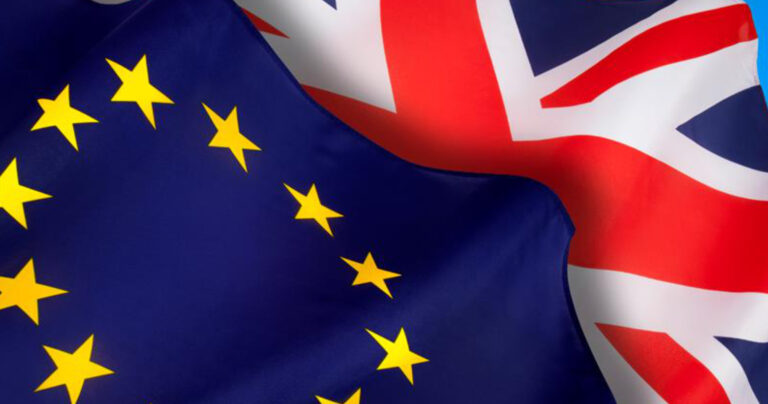Exchange rates fluctuate constantly, so it’s crucial to check the rates at the time of your transfer. However, searching for that one service which can suit all your needs of remittance can take more than just an hour. Also, some people might make a slight mistake in understanding the status of the value they can receive at the exchange rate.
While this article speaks about the factors that influence the value of the exchange rate. We also try to ease out, ‘How much a Pound can Value in Indian Rupees’. So, be with us on this article till the end.
What is Exchange Rate?
Exchange rate is defined by the value it shows of one currency in relation to another. Though, this can apply to exchange money between the pound and the rupee. Also, it comes with factors like the status of the economy, the interest rates, and the demand of consumers.
The value of Indian Rupees you will get for each British Pound is set by the exchange rate. You would normally need to pick a remittance service provider to convert from British Pound to Indian Rupees.
This might be a bank, an internet platform for money transfers such as web services, or a specialized remittance business. Nevertheless, creating an account, providing the relevant information, and specifying transfer specifics, such as the recipient’s bank account information, may all be required.
An exchange rate quote based on the current market rate, with a modest profit or charges added, will get you on their web service. Some of them could also tack on extra charges for their services, such as transaction fees and markups on currency rates.
As you’ll be agreed upon exchange rate, and their fee’s structure, the provider will change your British Pounds to Indian Rupees which will later be transferred into the recipient bank in India. However, the time of transfer can vary depending on the provider and the method you will use for your transfer services.
Importance of understanding the exchange rate:
The exchange rate plays a part in international trade and finance because it picks how much one currency is worth in respect to another. It is just money spent on converting one currency to another. For a variety of stakeholders, including corporations, governments, and individuals, understanding the exchange rate’s essential.
- International Trade: The competitiveness of a country’s exports and imports is directly impacted by exchange rates. A country’s exports become more affordable and alluring to international purchasers when its local currency is weak in comparison to other currencies. This can increase the nation’s exports and support economic growth. On the other hand, a strong home currency may reduce export competitiveness while lowering the cost of imports.
- Economic Stability: The stability of a country’s economy is influenced by exchange rates. Exchange rate volatility that is quick and abrupt might cause economic instability. As imported items increase in price as a result of a currency’s fast depreciation, for instance, inflationary pressures may develop. To guarantee stability and conduct effective monetary policies to control currency swings, central banks and decision-makers carefully watch exchange rates.
- Investment and Capital Flows: Capital flows and investment decisions are impacted by exchange rates. In order to increase their earnings, investors search for favorable exchange rates. While a weak currency may promote capital outflows, a strong currency might draw foreign investments. To keep investors confident and draw in foreign direct investment, exchange rate stability is essential.
- Tourism: Tourism is heavily influenced by exchange rates. A favourable exchange rate can increase a destination’s accessibility to international visitors, strengthening the tourism sector and bringing in money for the community’s economy. On the other hand, a bad exchange rate might discourage travellers and have a detrimental effect on the travel and tourism industry.
Let’s now talk about how important currency rates are for remittance services:
For those who work abroad and transfer money back to their home countries, for them remittance services are crucial. The value of the remittances received by the receivers is directly impacted by exchange rates. Why currency rates matter for remittance services is as follows:
- Cost of Remittance: The amount received in the currency of the receiver is determined by exchange rates. For the same amount sent in the sender’s currency, recipients receive more when the exchange rate is favorable. A higher exchange rate can greatly raise the remittance’s purchasing power, which is advantageous to the receiver.
- Affordability: Exchange rates have an influence on remittance service costs as well. Higher fees or charges could be imposed to cover the expenses of currency conversion when the exchange rate is less advantageous. A better exchange rate can make remittance services more inexpensive, allowing people to send money to their family with fewer transaction fees.
- Economic Impact: Remittances are frequently necessary for maintaining the financial system of many developing and poor countries. Remittances make up an important portion of a country’s GDP. When exchange rates are favorable, remittance inflows increase, providing a boost to the recipient country’s economy, restoring consumption, and supporting various sectors.
The economy of several developing nations frequently relies heavily on remittances. Remittances can be said to cover an equal portion of a nation’s GDP. Remittance inflows rise when currency rates are favorable, boosting the economies of the recipient countries, promoting consumption, and assisting numerous industries. Know How Does Remitting Money to India helps its Economy.
How many rupees does one british pound equal:
As we all got it that, Exchange Rates change every time, and hour. So, it is important to remember that the actual value can vary over time.
Nevertheless, to you the ballpark figure.
As of the recent update on Xmonies, one British pound is approximately equivalent to around 100 to 110 Indian rupees.
Please keep in mind that exchange rates are subject to change, so it’s always a good idea to check with a reliable web service which deals with a financial or currency exchange service, for the most up-to-date information.
How to convert UK currency into Indian Rupees:
To convert UK currency (British pounds) into Indian Rupees, you can follow a few simple steps.
First, find the current exchange rate of GBP to Indian Rupees. This can be done by checking financial websites or using currency converter apps. Once you get the exchange rate, multiply your total in British pounds by this rate.
Example: if the exchange rate is 100 INR for 1 GBP and you have 50 GBP, multiply 50 by 100 to obtain 5,000 INR. Remember to count in if there are any fees or charges.
However, on many remittance service websites you can find such converters too.
Finally, after taking out any fees, you’ll get an estimate in Indian rupees.
It is needed not to forget that exchange rates may shift, therefore it is a good idea to verify the rates before making any changes, and for exact results, visit a reputable remittance service or currency exchange service.






